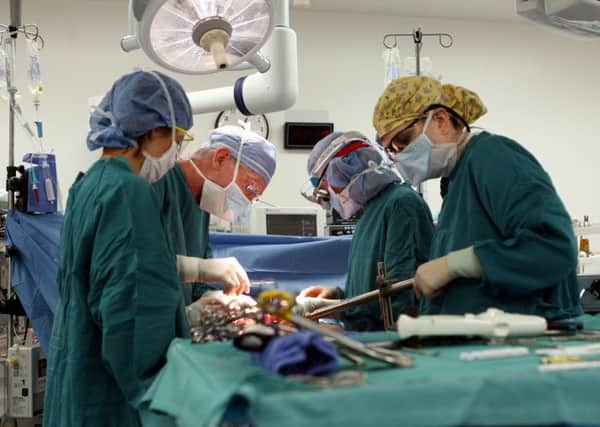Bill can help stamp out organ trafficking


According to the World Health Organisation, the international trafficking of organs is a growing problem with about 10,000 organs being bought and sold on the black market every year around the world. While there is a small market for hearts, lungs and other body parts, it is kidneys that represent the large majority of organs being trafficked since most people are born with two kidneys and it is possible to survive with only one.
The countries in which organs are being bought from individuals are some of the most impoverished in South America, Africa and Asia, while recipient countries include the United States, Canada, Australia, the UK and Japan.
Advertisement
Hide AdAdvertisement
Hide AdTrafficking persons for organs involves a whole host of offenders including recruiters who identify potential organ providers, those who arrange transport to the hospitals, the clinical staff responsible for the surgery and the salesmen who organise the trade. Moreover, because of the involvement of so many national and international players, the trafficking is difficult to police.
In 2002, a GP in London was forbidden from ever practicing medicine again in the UK after being found guilty of offering to obtain a kidney on the black market abroad from a live donor in exchange for payment.
There are also persistent accounts among medical professionals of having to treat patients on the NHS who purchased a trafficked organ abroad in order to side-step the waiting list, but who returned to the UK with medical complications, though accounts which are difficult to investigate because of the duty of physicians to maintain patient confidentiality.
In 2013, a UK government report indicated that the number of organ trafficking victims in the UK was rising and had reached record levels. This included, for the first time ever, the case of a girl being brought to the UK from Somalia with the aim of removing and selling her organs.
The same year, it was reported that British patients were being offered illegally trafficked kidneys by an international organ dealer based in India for tens of thousands of pounds.
He had also apparently recommended a hospital in Sri Lanka as a suitable place to undertake the surgery.
It is in this context that the Human Trafficking and Exploitation (Scotland) Bill, currently going through the Scottish Parliament, should be welcomed in seeking to put a stop to such a distressing practice.
This legislation would make it an offence for a person to become a trafficker in Scotland by arranging or facilitating the exploitation of other persons with the aim of selling their organs. Moreover, if this trafficker is a habitual resident in Scotland, he or she would be committing an offence even if the organ trade took place abroad.
Advertisement
Hide AdAdvertisement
Hide AdIt could be argued, however, that the provisions of the bill do not go far enough in combating this sad commerce.
For example, it could be suggested that it should also be considered an offence if a person from Scotland knowingly goes abroad to purchase a trafficked organ for personal use.
Of course, such a person may be seen as desperate, but this should not be a sufficient reason for him or her to support a trade which exploits some of the most vulnerable people in the world.
International organ trafficking will only be appropriately addressed if the demand for illegally obtained organs is curtailed through an increasing number of countries developing and using such legislation.
Precedent for such a soliciting offence already exists in the United Nations Convention on the Rights of the Child, which was ratified by the UK in 2009. This states that any person who originates or who lives in a country and who travels abroad to sexually abuse a child for remuneration commits a crime and may be prosecuted when returning home.
Scotland should take a lead in upholding the protection of those who are among the weakest and poorest persons in the world.
It should seek to address their plight and difficulties by supporting and helping them in a humane and dignified manner.
It should have one of the most robust systems in place to combat organ trafficking and any person taking part in such an exploitative commerce.
• Dr Calum MacKellar is director of research of the Scottish Council on Human Bioethics, Edinburgh www.schb.org.uk